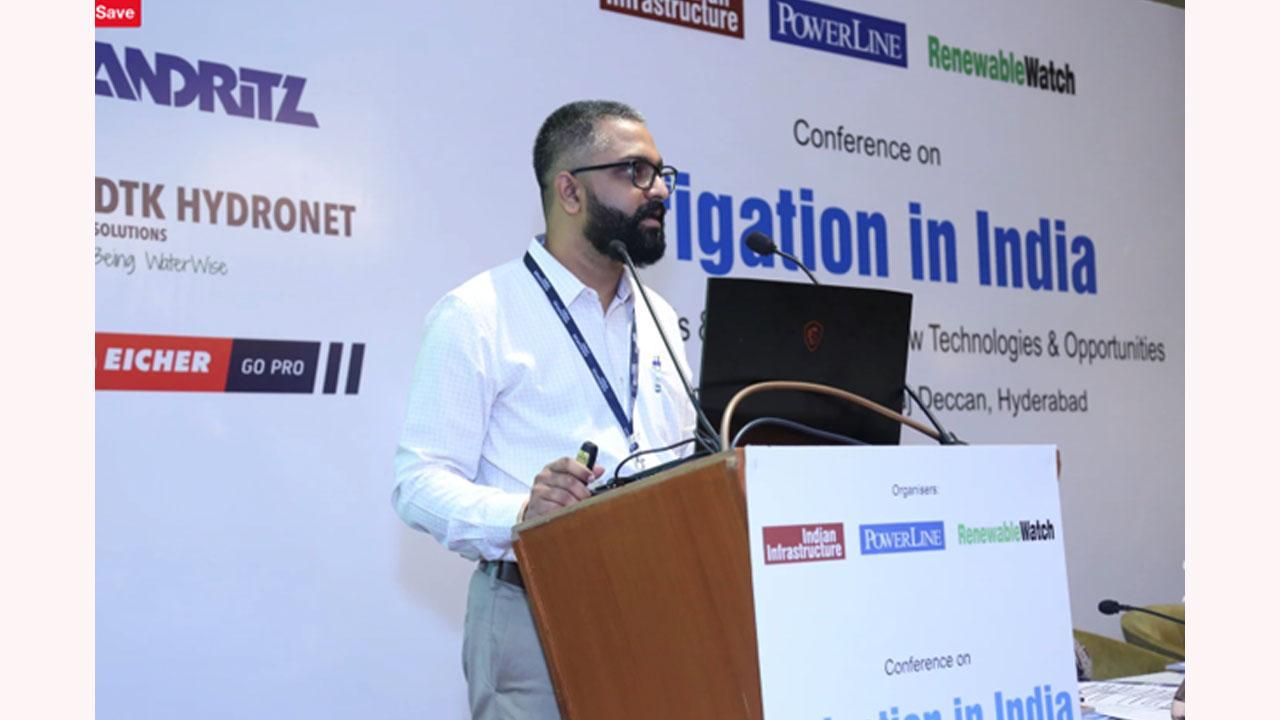A few of Kulkarni's most significant achievements are in water network systems.

Tanay Kulkarni
As cities worldwide grapple with increasing populations, overburdened infrastructure, and environmental challenges, Artificial Intelligence (AI) and IoT can emerge as influential forces, trying to solve some of the problems in urban planning and infrastructure management.
ADVERTISEMENT
AI-based smart city systems facilitate real-time observation, predictive maintenance, and better resource allocation, laying the groundwork for a responsive and resilient city. Tanay Kulkarni, a renowned infrastructure management expert, has been actively devoting his time to fusing technology into the functioning of cities to make cities smarter.
As a Water Engineering SME, he has overseen technologically advanced projects that enhance urban planning, optimize water supply, and optimize critical infrastructure networks. His influence has reached several U.S. cities, where he has facilitated the implementation of predictive maintenance frameworks and geospatial data dashboards, changing how infrastructure assets are monitored and managed to ensure public health.
A few of Kulkarni's most significant achievements are in water network systems. Conventional water networks tend to experience inefficiencies, such as leaks, ageing pipes, and supply-demand imbalance, rendering the system volatile. Using AI and machine learning (ML)- based demand forecasting, pipe-break prediction, and risk-assessment models, Kulkarni has empowered cities to reduce non-revenue water losses and improve distribution efficiency so that cities can manage one of their most precious resources more effectively.
The inability to anticipate system failures before they happen has long been a major obstacle in the management of citywide infrastructure. Kulkarni has filled this gap by creating ML-powered risk prediction models that identify possible breakdowns in energy and water networks, enabling local governments to provide proactive maintenance.
He also developed demand forecasting and pipe break prediction models powered by machine learning algorithms, which decreased non-revenue water losses and increased distribution effectiveness. Additionally, the lack of automation in infrastructure decision-making prompted him to focus his efforts on creating geospatial AI dashboards that would simplify asset monitoring and urban planning. This level of automation has significantly improved resource allocation and the efficiency of urban asset monitoring, hence resulting in the smooth automatic functioning of the cities.
His contributions to the field are not limited to hands-on projects. Kulkarni is presently co-authoring the American Water Works Association's (AWWA) M32 – Computer Modeling of Water Distribution Systems, Fifth Edition, a key reference in the digital water infrastructure world that is anticipated to be published in 2026. He is also a two-time recipient of Bentley Systems' "Year in Infrastructure" Award for his innovations in digital water infrastructure.
Additionally, many of his research papers, including but not limited to, Artificial Intelligence in Public Water Works: Enhancing Management, Security, and Sustainability, (2025) Int. Jour. of Science and Research (SJ Impact Factor: 7.1); Integrating Artificial Intelligence and IoT for Predictive Maintenance in Wastewater Systems, (2024) Int. Jour. of Science and Tech. (Impact Factor: 9.8); Digital Transformation of Infrastructure Systems: Convergence of Digital Innovation and Cyber-Physical Resilience,(2023) Int. Jour. Core Eng. & Mgmt. (SJ Impact Factor: 6.3); and, An Innovative Geostatistical Framework for Prioritizing Inspections in Water Distribution Networks, (2022) Int. Jour. Sci. Research in Eng. & Mgmt. (SJ Impact Factor: 8.5)– have influenced best practices in digital infrastructure management.
Looking at the current trends, Kulkarni sees several trends shaping the path of AI-driven smart cities. The rise of digital twins-virtual replicas of physical infrastructure-will enable real-time simulations and more precise urban planning. Predictive maintenance powered by machine learning will continue to replace costly reactive repairs, ensuring infrastructure resilience. The proliferation of IoT-enabled smart networks will further enhance urban efficiency, as real-time sensor data will allow for dynamic decision-making. Moreover, AI will be crucial in sustainability, particularly in circular economy management, optimizing resource utilization, and minimizing waste.
As cities continue to evolve, AI and IoT-driven infrastructure management will play a pivotal role in ensuring they are not only efficient but also responsive to the challenges they face. Kulkarni's work underscores the growing work on harnessing AI, data intelligence, and cyber-physical systems to create responsive and efficient urban environments.
 Subscribe today by clicking the link and stay updated with the latest news!" Click here!
Subscribe today by clicking the link and stay updated with the latest news!" Click here!












